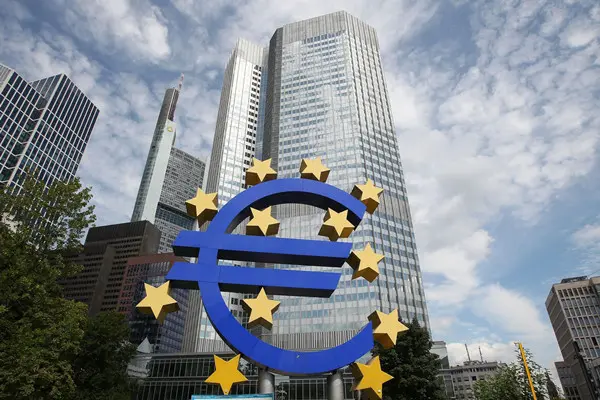Members of European Parliament (MEPs) called for "balanced structural funds, solid national budgets and responsible fiscal policies in member states" in a resolution adopted on Tuesday.
This came a day after the yearly debate on annual report of the European Central Bank (ECB) with its president Mario Draghi.
The European Parliament (EP) report on the activities of the ECB, adopted by 437 votes in favor, 121 against and 140 abstentions, recalls that the real growth of the eurozone remains modest and geographically uneven.
The EU predicted that the eurozone economy will grow by 1.6 percent and 1.8 percent for 2016 and 2017 respectively, after 1.7 percent in 2015.
Unemployment has lowered, but the disparities between member states have grown, ranging from a rate of 4.6 percent in Germany and 24.9 percent in Greece, the report noted.
MEPs said in light of such disparities, "it is urgent and necessary to plan ambitious and socially balanced structural reforms in the eurozone."
"These reforms would directly facilitate investment and employment, and would have a positive effect on demand in terms of credit and investments," MEPs added.
In its resolution, the EP worries that "the ECB is weakening the link between the provision of central bank liquidity to banks and their lending to the real economy, by enabling them to borrow at negative rates without increasing their lending to firms and households in the euro area."
Addressing negative interest rates, MEPs noted risks to private savings and pension plans, as well as the dangers linked to new activities and housing bubbles.
The text of the resolution also pleads for the "EU banking union to be completed and implemented in full and also for further work on the capital markets union, in order to improve the effectiveness of single monetary policy."
The president ofEuropean Central Bank (ECB) Mario Draghi. Photo: AFP
"We are committed to act if necessary in making use of all the instruments available as part of our mandate in order to achieve our objective" of a rate of inflation below but near 2 percent, Draghi told the Strasbourg hemicycle on Monday in a debate organized around the bank's annual report.
The ECB governing council will meet on Dec. 8 when an easing of monetary policy is expected, which should translate into a six-month extension of the massive debt purchasing scheme intended to revive a morose European economy.
The ECB has otherwise lowered its interest rates to historically low levels and fired up the minting press with the goal of inciting banks to lend more, always with the hope of restarting growth.
Facing MEPs, Draghi conceded that very low interest rates held too long would bring risks for financial stability.
These risks "have been contained until now, but we are aware of the fact that this cannot last forever," he said.
"In the medium-term, negative interest rates will certainly create negative effects on bank profitability," admitted the bank chief.
Draghi celebrated, however, the "resilience" of the European economy "despite the international situation."
According to him, this resilience is the fruit of a reinforced solidity in the banking sector thanks to reforms carried out on a European level since the crisis of 2008.
"Nevertheless, a certain number of structural elements still constitute a difficulty for the euro zone and especially for the profitability for banks in the euro zone," he added, in calling for "structural changes" in order to improve this profitability.
"Budgetary policies must also help the economic recovery while respecting EU rules," Draghi said, even as the European Commission has just asked Germany to slightly raise its public spending.
During the debate, Vice-President of the European Commission Valdis Dombrovskis assured MEPs that Brussels was continuing to survey the risks provoked by very low interest rates.
(APD)
 简体中文
简体中文

